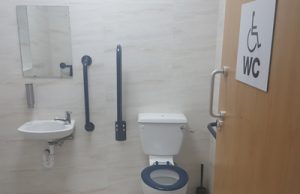Islamic Perspective on Disability & Special Needs
Allah (May He be exalted) created all creatures and indeed man was created in a perfect and beautiful form. However not all people are equal in every aspect as Allah gave attributes to people of varying degrees so that some excel over others through their abilities and skills. But with the greater attributes, also comes greater accountability.
In some cases, Allah may test those who He loves the most and this can often be exemplified in the lives of the prophets. Many were weak and poor, but even then they would always help others, especially the needy.
We have been informed that those who are ill, or in pain have their sins wiped away with every hardship they face.
Abdullah ibn Mas’ūd reported: The Messenger of Allah (ﷺ) said, “There is no Muslim who is afflicted with pain as much as the prick of a thorn or more but that Allah will expiate his sins just as leaves fall from a tree.” [Ṣahīhh al-Bukhārī Hadeeth 5324]
We also know that the du’ā of the sick or infirm is more readily accepted.
It was narrated that ‘Umar bin Al-Khattāb said: “The Prophet (ﷺ) said to me: ‘When you enter upon one who is sick, tell him to pray for you, for his supplication is like the supplication of the angels.’” [Sunan ibn Mājah, Hadith 1441]
There were numerous companions of the prophet (ﷺ) who were disabled, but they were accommodated and held in great esteem.
Abdullah ibn Mas’ūd was known to have a thin leg and deformed foot which was ridiculed by people. But he was honoured by the prophet (ﷺ) by being one of his close companions who accompanied him in all situations and was one of the most knowledgeable reciters of the Qur’ān.
Similarly, Ibn Umm Muktoom was a blind man who was considered inconsequential in his society. However, the prophet (ﷺ) honoured him by delegating leadership of Madina to him while the prophet (ﷺ) was absent due to his many expeditions.
The prophet (ﷺ) would also ensure the special needs of companions would be met in cases where there was a special need, such as that of Abdur-Rahmān ibn Awf who was allowed to wear silk due to his skin condition, despite the fact that silk was prohibited to Muslim males as it is a sign of extravagance and arrogance.
These examples and others signify the importance of inclusivity of people with all disabilities as Islam is a religion open to all people regardless of their physical abilities.
Disabled access for worshippers in Barnet

Before our new centre was built, there was a severe shortage of disabled access in Islamic places of worship in Barnet.
There were only two regular mosques, one in West Hendon and the other in Finchley, with both buildings having stairs and limited or no wheelchair access. Thus, there was a great need to have a Mosque that caters for all Muslims regardless of their physical abilities.
We have incorporated the following features in our Centre and are always striving to incorporate other features.
-
Parking for wheelchair accessible vehicles
-
Ramped access for wheelchairs through the main entrance and side entrance
-
Lift installed to allow access to first floor
-
Disabled toilet with fitted handrails
-
Seats in main prayer hall and ladies area for the elderly and infirm
-
Large print Qur’ān for the visually impaired
-
We are also able to provide a braille Qur’ān
If you would like to visit our mosque and have special needs other than those listed above, please drop us a message and we will try to meet your requirements.
